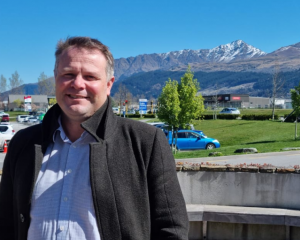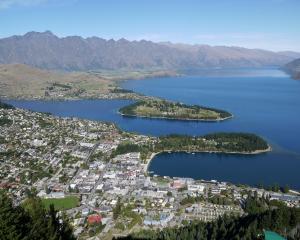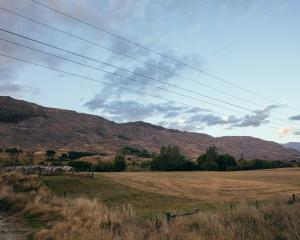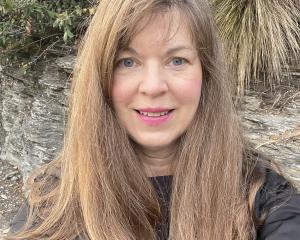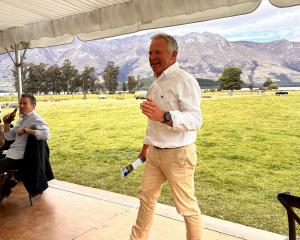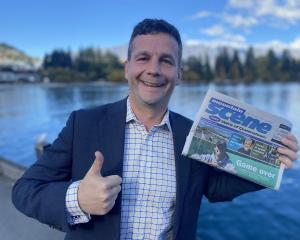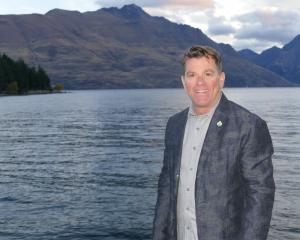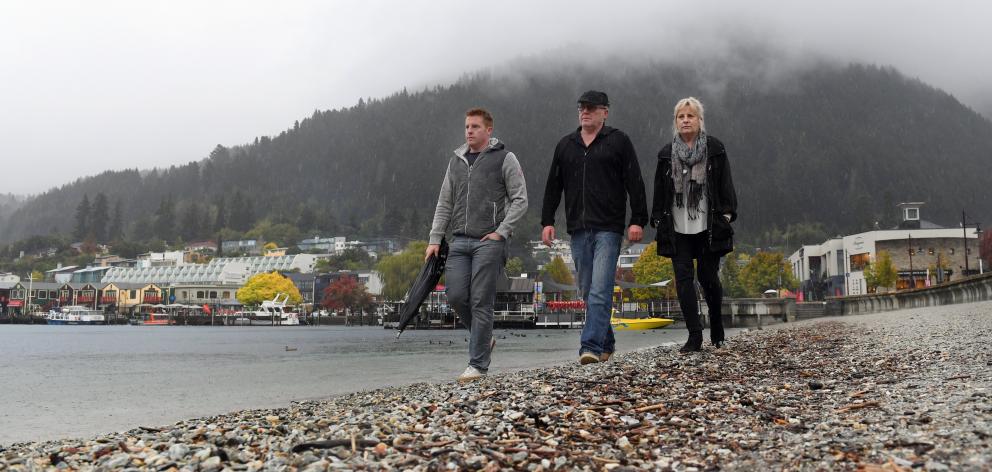
Two weeks before Mitch Gameren's death in November 2015, he took his brother for a helicopter flight.
Brett Gameren - himself a pilot - was impressed with his younger brother's pre-flight checks and professionalism as he landed on the ice at Fox Glacier.
Describing him as confident, without being arrogant, at the controls, Brett was very proud of his little brother, younger by two and a-half years.
The pair "had a ball'' on that trip, and the memory was even more special given Mitch's untimely death such a short time later.
Mitch (28) was flying an AS350 Squirrel helicopter on a scenic tourist flight when it plunged into a deep crevasse high on Fox Glacier, killing all seven people aboard.
Living the rest of his life without his brother was tough for Brett to think about.
Mitch was the competitive little brother who was also a great mate. The pair competed at everything - whether PlayStation games or sport - and his death left a "massive hole''.
It was hard seeing Mitch's friends now getting married and having children. Brett's own son, Ryan (3) - who was very like Mitch - was growing up without an uncle, and he worried about his own memories fading as time passed.
On May 17, Brett, father Paul Gameren and mother Adrienne Bray will head to the Christchurch District Court.
They hope it will be the end of what has been a prolonged process since charges were laid by the Civil Aviation Authority in June 2016.
Helicopter company owner James Scott and quality assurance manager Barry Waterland were charged under health and safety legislation.
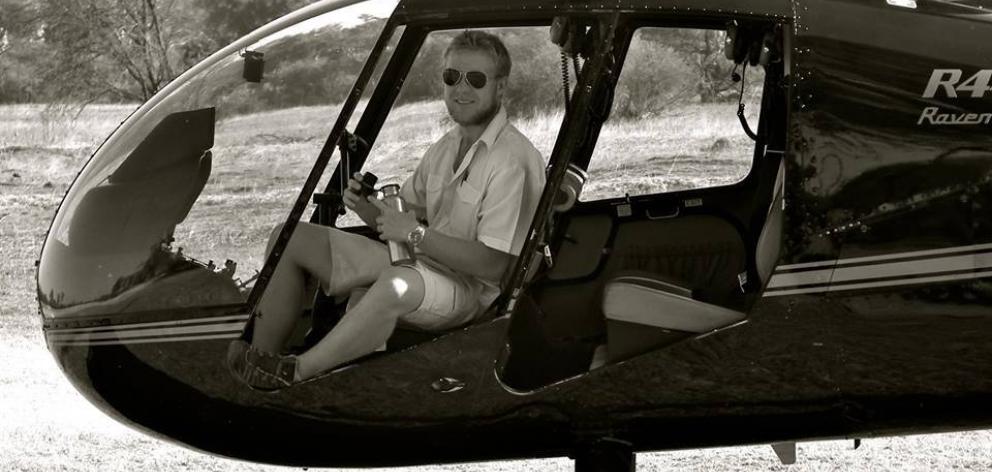
Mr Waterland's company, Aviation Manual Development (2009) Ltd, was charged with failing to take all practicable steps to ensure no action or inaction of any employee while at work harmed any other person. The maximum penalty for each of those charges is a $250,000 fine.
The CAA would not confirm details of the case, but the ODT understands the men have pleaded guilty, and the Gameren family has told the newspaper they are being sentenced on May 17.
For Brett Gameren, sentencing will not bring closure. The only way that might happen would be if the family knew changes were being made in the aviation industry, particularly around helicopters, he said.
There had been "way too many'' accidents involving helicopters in what was a very dangerous industry.
Now, he and his father were determined to push for those changes, requesting a meeting with the heads of Civil Aviation.
Paul Gameren wanted something positive to come from his son's death; there was so much scope for improvement to make it a safer industry, and so much technology available.
He and Brett believed technology similar to the electronic recording devices placed in fixed-wing aircraft for the purpose of facilitating the investigation of aviation accidents and incidents - often referred to as the "black box'' - could be used in helicopters.
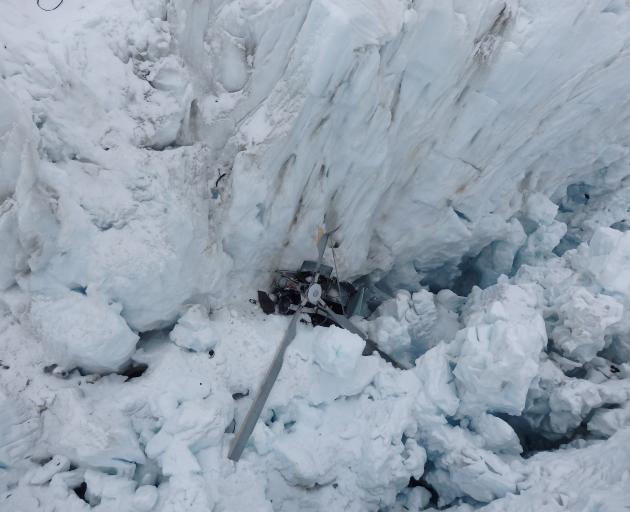
Brett would also like to see implementation of "Just Culture''; if any pilots had a "close call'' while flying, they could tell other pilots about what happened and learn from that experience.
Paul Gameren feels angry - "ripped off'' - at what he believes are shortcomings by Civil Aviation, which he describes as the "police force in the sky''.
Since Mitch's crash, there have been a spate of helicopter fatalities in the South. Every time he heard news of a crash - including vehicle fatalities - he got upset, knowing first-hand what the affected families were about to go through.
His daughter Brooke - Mitch's half-sister - also missed her brother terribly, describing him as "the most out there, go get 'em person''.
"He had a passion for the outdoors, whether that was flying or fishing or sitting by a lake. Queenstown is full of these beautiful memories,'' Brooke said.
"Mitch and I spoke on the phone for nearly an hour a couple of days before his accident and that's a conversation I will hold close to my heart forever.
"There will never be a day I will not think about my big brother. But how lucky am I to have had a brother like Mitch to make such a massive impact on my life.''
For a long time after Mitch's death, Paul Gameren felt like a bucket of mud had been tipped over his head, unable to think clearly.

While he acknowledged company owner James Scott did not want the accident to happen, he believed he could have "done a better job of running his company''.
Paul Gameren never liked the idea of his younger son flying helicopters.
"I didn't like it, never liked it ... [but] how do you stop a young man doing what he loves to do? It doesn't mean you've got to be happy about him doing it.''
He also felt deeply for the families of the other occupants of the helicopter. Knowing how distraught he was over the loss of his son, his heart went out to them, knowing they were going through the same thing.
It was somewhat inevitable the Gameren brothers would both pursue careers in the aviation industry.
Their great-aunt was the first female flight instructor in New Zealand - so it was, technically, in their blood - but their love of flying was instilled at an early age.
Their mother worked at Southern Lakes Helicopters and the boys spent a lot of time there.
They would often disappear and be found sitting in the cafeteria, eating chips and watching planes.
Mitch originally started flying fixed-wing aircraft, reaching 50 hours, before switching to helicopters.
He spent two and a-half years working in Botswana, where he combined his two passions of flying and animals - and even took Hollywood heavyweight Harrison Ford for a flight.
Adrienne Bray and her husband, Kelly - Mitch's stepfather - were "lucky enough'' to fly with him while he was there.
Someone quipped that it was like having broadcaster and natural historian David Attenborough in the helicopter as he provided - with his easy-going nature and ability to communicate with those of all ages - commentaries on the wildlife.
It was dangerous country; thorny bushes had to be dragged around helicopters on the ground to prevent hyenas chewing the under-carriage. Mitch used to run on the airstrip, where he was also chased by wildebeest.
Pilots operating in such conditions had to "learn how to think on their feet'' and be self-sufficient, Brett said.
That job was followed by six months doing medical evacuations in Malaysia before Mitch was ready to return home.
Working on the West Coast, he showed tourists "his country'', his mother said.
With both his parents living in Queenstown, he was a frequent visitor to the resort town, where he had been a pupil at St Joseph's Primary School.
Often, his mother did not know that he was coming but there was "nothing nicer'' than when he pulled into the driveway.
Recalls Paul: "He made everyone feel good. Nothing made me happier than seeing Mitch walk in the door with a big smile on his face.
"He was just a young man that loved life. He loved the outdoors, he loved adventures, he loved his family. He was just a cool dude. Everyone loved to hang out with Mitch.''
He was in Queenstown the week that he died and his parents both wished, in hindsight, that he had stayed an extra day.
He was there on the Thursday for the funeral of a friend who had succumbed to cancer. He drove back to the coast on Friday and was killed on Saturday.
Mitch's family expressed gratitude to the emergency services involved with the tragedy - including Search and Rescue and police - and also the West Coast community for its support.
Bad weather hampered efforts to retrieve the bodies from the glacier and, at one point, Mrs Bray did not think they were going to be able to take Mitch home.
"For me, it was amazing getting Mitch off that mountain. I didn't think it was going to happen. I was so pleased when they got him off. It was incredible and it was a relief.''
In hindsight, Mrs Bray believed a senior pilot should have suspended flying on the day of the crash because of the weather, while Brett said "commercial pressures'' in general would have been in play.
He was very conscious that the most dangerous place a pilot could be was "on the way they want to go''.
"I've been there. I've done it - flown in conditions I shouldn't have.''
Whether it was striving for a good reference, getting flying hours up or trying to make that next step, it was the most dangerous point of a pilot's career until they got to that "final position'', which, for him, was flying for Air New Zealand.
Now based in Auckland, Brett flies planes around the Pacific Rim, commuting to Queenstown.
Asked whether his brother's death made him question his own flying career, Brett said he initially got angry at the industry - but he never wanted to give up flying, nor would Mitch want him to. Time was needed to settle his emotions.
Mitch's family has permission from the Queenstown Lakes District Council to place a memorial seat on the resort's lakefront.
Mitch - at this stage - does not have a final resting place. Instead, his ashes take turns at spending time with his family so he is never left alone.
"Sometimes we just miss him, and it's cool to have him there,'' his father said.
Comments
If the Civil Aviation Authority is 'the police force in the sky', then their prosecutions, the process and the outcome and all the details should be public. Because justice is not done if justice is not seen to be done. Secret prosecutions are part of a police state or, possibly worse, hiding information which is in the public interest to have publicly available. Like various estimated risks of flying. I am sure the Official Information Act applies to the CAA. So I wonder on what grounds they would refuse to release all the details of a fatal accident. Not 'commercial sensitivity', I hope.
What they should have is the Right to sue.

